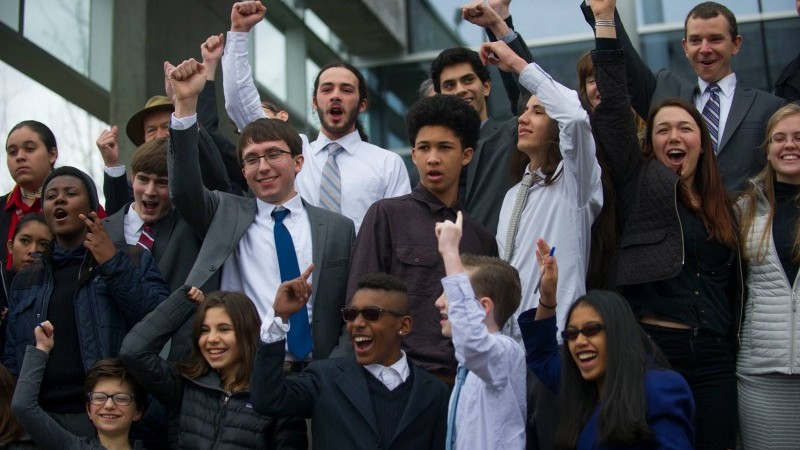The US federal government has invoked a rarely used legal tool to try and quash a climate lawsuit brought by 21 young people.
After district court judge Ann Aiken last week stood by her decision that the youth lawsuit deserved a hearing, the Trump administration went over her head to the 9th circuit court of appeals on Friday to get the case dismissed.
The district court committed “multiple and clear errors of law,” according to the government petition. It called for immediate relief from the “staggering burden” of information demanded by the plaintiffs to inform proceedings.
Using its “mandamus [superior] powers”, the circuit court should overrule Aiken and “end this clearly improper attempt to have the judiciary decide important questions of energy and environmental policy to the exclusion of the elected branches of government,” the defendants argued.
Our Children’s Trust, an NGO working on behalf of the youth plaintiffs, countered that the judiciary has equal right to the executive to weigh in on any policy area.
A 2004 supreme court ruling described mandamus as a “drastic and extraordinary remedy” to be used in “only exceptional circumstances”.
In a statement, Our Children’s Trust quoted Douglas Kysar, a Yale law professor not directly involved in the litigation.
“For the Trump Justice Department to even seek a writ of mandamus in the current context is offensive to Judge Aiken, to the entire federal judiciary, and, indeed, to the rule of law itself,” said Kysar.
“The writ should not be granted and we should all question why the Trump administration’s lawyers are willing to try such a trick rather than forthrightly defend the case.”
Report: Trump administration sued over climate change ‘censorship’
At stake is the question of whether inadequate climate policy violates the constitutional rights of children and future generations.
Filed during Barack Obama’s presidency, the case has been inherited by Donald Trump’s justice department, which appointed former coal lobbyist Jeffrey Wood to the defence.
The plaintiffs are calling for a plan to bring carbon dioxide levels in the air back below 350 parts per million, a “safe” threshold breached three decades ago. That remedy would require sucking CO2 out of the atmosphere as well as steep cuts to greenhouse gas emissions.
Victoria Barrett, 18, of White Plains, New York, one of the youth plaintiffs, said: “The US Government is running from some of its youngest constituents, and all we’re asking for is a plan to preserve our future.”
If the Trump administration cannot get the case dismissed, it is due to go to trial later this year. A public case management conference will take place on Wednesday at the district court in Eugene, Oregon.
Julia Olson, co-lead counsel for the plaintiffs and executive director of Our Children’s Trust, said attempts to stall the court hearing showed the government’s weakness. “If the Trump administration was at all confident it could defend itself at trial, it would be preparing for trial,” she said.
As part of the discovery process, lawyers representing the youth have demanded government records including correspondence with the fossil fuel industry.
Three industry bodies – the American Petroleum Institute, National Association of Manufacturers and the American Fuel & and Petrochemical Manufacturers – intervened in the case to defend their interests, but are now seeking to back out.
“The Trump administration wouldn’t be scrambling to avoid facing us in trial if they were upholding their constitutional duty to protect us,” said Nathan Baring, a 17-year-old plaintiff from Fairbanks, Alaska.
“The public is waking up to the blatant collusion between business and governmental interests at the expense of the people, at the expense of our liberties.”
